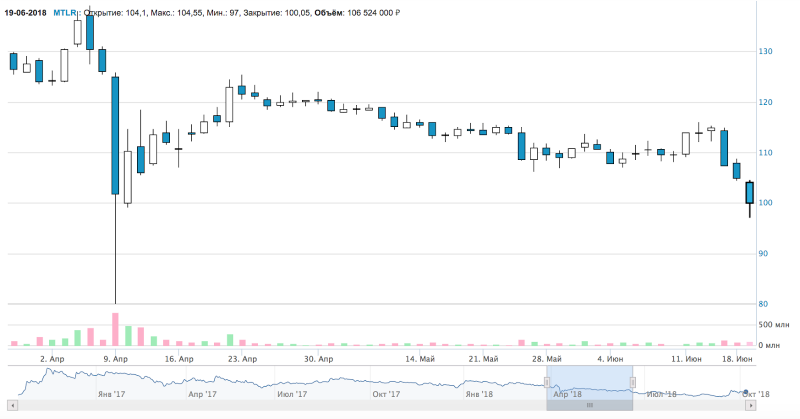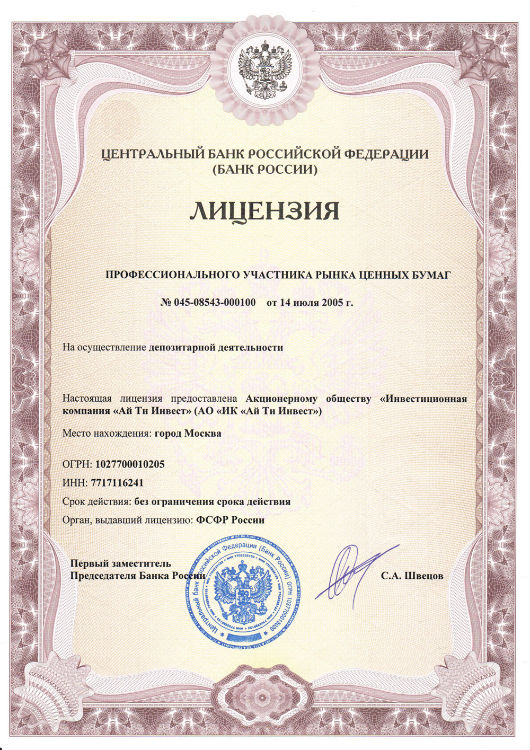Analysis: how money is actually protected when trading on the exchange

Image: Unsplash
In the comments on our publications on Habré, readers often ask questions about how investor funds are protected (and whether generally protected) when trading on the exchange. It is widely believed that becoming a victim of fraud in this area is quite easy - here is an example of a comment on the topic.
In fact, everything works a little wrong - you can always lose money on the exchange due to unsuccessful investments, and this risk is always there, but the rest of the assets of investors in Russian exchanges are seriously protected by legislation and regulations, and risk management tools are being actively developed.
Today we will answer a number of popular questions about how the protection of funds of exchange investors is implemented.
What happens if a broker goes bankrupt?
Money and shares of clients of brokerage companies and today protects a number of laws and regulations.
If a broker went bankrupt or lost a license, the rights of his clients are guaranteed by Russian law. For example, no broker has the right to close debts due to client assets. So, in case of financial difficulties, the broker can not pay your money with anyone.
In addition, shares bought on the exchange cannot be lost: they are not held by a broker, but in a special organization, the National Settlement Depository (NSD).
Securities are your property under any circumstances. Transferring them somewhere without your knowledge is impossible. The de facto depository is a state “bank” in which money and securities of participants in the stock and foreign exchange markets are stored. Thus, if something happens to your broker, you just need to negotiate with another broker and transfer the assets to it.
Is there any protection against stock price manipulation?
Periodically, serious price fluctuations and even investor panic may occur in the market. What does the exchange do in such cases? To prevent catastrophic collapses in asset prices, a price change corridor was invented. When the price of a stock or other financial instrument goes beyond the specified limits, the exchange stops trading.
So they protect investors from losses. For example, the Moscow Exchange suspended trading in Mechel stocks last spring, when their price fell too sharply.

April collapse of Mechel stock price | image: screenshot from the Moscow Exchange website
In addition, some brokers are developing their own tools to protect customer assets.
So in the SMARTx trading terminal there is a risk management module that allows you to set restrictions, violation of which leads to the prohibition of operations. This is one of the easiest ways to control risks when trading on the exchange.
Is there insurance for brokerage accounts?
The deposit insurance system protects your money at the bank - the maximum amount that may be under state protection today is 1.4 million rubles. At the moment, such a system for brokerage accounts does not exist, but the state plans to create a system of insurance of individual investment accounts (IMS).
We talked in detail about how to use such an account for low-risk investments . Its owner can receive various benefits from tax deductions to simplified taxation. As soon as a new system is created, your money in an individual investment account will also fall under the protection of the state. According to plans, in the future such insurance will also cover up to 1.4 million rubles.
Who controls the work of brokers?
All the activities of Russian brokers are regulated by Russian legislation, namely the Civil Code of the Russian Federation, the Law on the Securities Market and other regulatory legal acts of the Central Bank of Russia.
A diligent broker is a broker who has received a license and values his reputation, because it can be withdrawn if he violates the rules. The license is usually posted on the broker's website, and it should look something like this:

License of a professional participant in the securities market. Examples of other licenses can be found on our website.
If licenses issued by other organizations (for example, foreign ones) are posted on the broker's website or in his office - you should worry. Head offices in all sorts of island states are a clear signal that if you cooperate with such a company, your rights and investments do not protect Russian laws. Accordingly, the risk of fraud is very high.
How to choose a broker?
Another popular question. We have put together the main criteria that should be guided into a single list. Here they are:
- company reliability rating (leaders may differ in different versions of ratings, but some companies will be stable in the top - you should pay attention to them)
- term of work in the market;
- a variety of trading software and options for transactions (terminals, applications, web cabinet, etc.);
- access to Russian and international sites within a single account;
- a variety of tariff plans, transparency of commission calculations, etc.
That's it for today, thanks for watching! If you have any other questions, we will be happy to answer in the comments.
Useful links on the topic:
All Articles